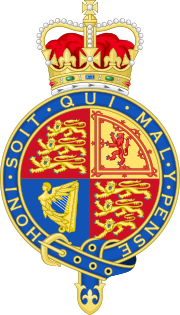
A trust is a legal relationship in which the holder of a right gives it to another person or entity who must keep and use it solely for another's benefit. In the Anglo-American common law, the party who entrusts the right is known as the "settlor", the party to whom the right is entrusted is known as the "trustee", the party for whose benefit the property is entrusted is known as the "beneficiary", and the entrusted property itself is known as the "corpus" or "trust property". A testamentary trust is created by a will and arises after the death of the settlor. An inter vivos trust is created during the settlor's lifetime by a trust instrument. A trust may be revocable or irrevocable; an irrevocable trust can be "broken" (revoked) only by a judicial proceeding.

Trustee is a legal term which, in its broadest sense, is a synonym for anyone in a position of trust and so can refer to any individual who holds property, authority, or a position of trust or responsibility for the benefit of another. A trustee can also be a person who is allowed to do certain tasks but not able to gain income. Although in the strictest sense of the term a trustee is the holder of property on behalf of a beneficiary, the more expansive sense encompasses persons who serve, for example, on the board of trustees of an institution that operates for a charity, for the benefit of the general public, or a person in the local government.

A constructive trust is an equitable remedy imposed by a court to benefit a party that has been wrongfully deprived of its rights due to either a person obtaining or holding a legal property right which they should not possess due to unjust enrichment or interference, or due to a breach of fiduciary duty, which is intercausative with unjust enrichment and/or property interference. It is a type of implied trust.

A discretionary trust, in the trust law of England, Australia, Canada and other common law jurisdictions, is a trust where the beneficiaries and/or their entitlements to the trust fund are not fixed, but are determined by the criteria set out in the trust instrument by the settlor. It is sometimes referred to as a family trust in Australia or New Zealand. Where the discretionary trust is a testamentary trust, it is common for the settlor to leave a letter of wishes for the trustees to guide them as to the settlor's wishes in the exercise of their discretion. Letters of wishes are not legally binding documents.
In trust law, a beneficiary or cestui que use, a.k.a. cestui que trust, is the person or persons who are entitled to the benefit of any trust arrangement. A beneficiary will normally be a natural person, but it is perfectly possible to have a company as the beneficiary of a trust, and this often happens in sophisticated commercial transaction structures. With the exception of charitable trusts, and some specific anomalous non-charitable purpose trusts, all trusts are required to have ascertainable beneficiaries.
Australian trust law is the law of trusts as it is applied in Australia. It is derived from, and largely continues to follow English trust law, as modified by state and federal legislation. A number of unique features of Australian trust law arise from interactions with the Australian systems of company law, family law and taxation.

English trust law concerns the protection of assets, usually when they are held by one party for another's benefit. Trusts were a creation of the English law of property and obligations, and share a subsequent history with countries across the Commonwealth and the United States. Trusts developed when claimants in property disputes were dissatisfied with the common law courts and petitioned the King for a just and equitable result. On the King's behalf, the Lord Chancellor developed a parallel justice system in the Court of Chancery, commonly referred as equity. Historically, trusts have mostly been used where people have left money in a will, or created family settlements, charities, or some types of business venture. After the Judicature Act 1873, England's courts of equity and common law were merged, and equitable principles took precedence. Today, trusts play an important role in financial investment, especially in unit trusts and in pension trusts. Although people are generally free to set the terms of trusts in any way they like, there is a growing body of legislation to protect beneficiaries or regulate the trust relationship, including the Trustee Act 1925, Trustee Investments Act 1961, Recognition of Trusts Act 1987, Financial Services and Markets Act 2000, Trustee Act 2000, Pensions Act 1995, Pensions Act 2004 and Charities Act 2011.

An equitable interest is an "interest held by virtue of an equitable title or claimed on equitable grounds, such as the interest held by a trust beneficiary". The equitable interest is a right in equity that may be protected by an equitable remedy. This concept exists only in systems influenced by the common law tradition, such as New Zealand, England, Canada, Australia, and the United States.
Kirby v Wilkins [1929] Ch 444 is a UK company law and English trusts law case involving the duties owed by a nominee of shares to the beneficiary. It determines that a beneficiary, if absolutely entitled, can instruct a bare nominee how to deal with the shares. Pending any instructions about voting from the beneficial owner, the registered holder can vote shares in the beneficiary's interest.
Re Londonderry's Settlement [1965] Ch 918 is an English trusts law case concerning the duty of trustees to provide information to beneficiaries. It has been heavily criticised and possibly doubted by Schmidt v Rosewood Trust Ltd.

Butt v Kelson [1952] Ch 197 is a UK company law and English trusts law case concerning the right of a beneficiary to direct its trustees to exercise votes on company shares that the trust possesses.
Constructive trusts in English law are a form of trust created by the English law courts primarily where the defendant has dealt with property in an "unconscionable manner"—but also in other circumstances. The property is held in "constructive trust" for the harmed party, obliging the defendant to look after it. The main factors that lead to a constructive trust are unconscionable dealings with property, profits from unlawful acts, and unauthorised profits by a fiduciary. Where the owner of a property deals with it in a way that denies or impedes the rights of some other person over that property, the courts may order that owner to hold it in constructive trust. Where someone profits from unlawful acts, such as murder, fraud, or bribery, these profits may also be held in constructive trust. The most common of these is bribery, which requires that the person be in a fiduciary office. Certain offices, such as those of trustee and company director, are always fiduciary offices. Courts may recognise others where the circumstances demand it. Where someone in a fiduciary office makes profits from their duties without the authorisation of that office's beneficiaries, a constructive trust may be imposed on those profits; there is a defence where the beneficiaries have authorised such profits. The justification here is that a person in such an office must avoid conflicts of interest, and be held to account should he fail to do so.
Discretionary trusts and powers in English law are elements of the English law of trusts, specifically of express trusts. Express trusts are trusts expressly declared by the settlor; normally this is intended, although there are situations where the settlor's intentions create a trust accidentally. Normal express trusts are described as "fixed" trusts; the trustees are obliged to distribute property, with no discretion, to the fixed number of beneficiaries. Discretionary trusts, however, are where the trustee has discretion over his actions, although he is obliged to act. The advantages of discretionary trusts are that they provide flexibility, and that the beneficiaries hold no claim to the property; as such, they cannot seek to control it, and it cannot be claimed for their debts. A power, or "mere power", on the other hand, is where not only does the holder have discretion over his actions, he has discretion over whether to act in the first place.

The Attorney General for Hong Kong v Reid (UKPC)[1993] UKPC 2 was a New Zealand-originated trust law case heard and decided by the Judicial Committee of the Privy Council, where it was held that bribe money accepted by a person in a position of trust, can be traced into any property bought and is held on constructive trust for the beneficiary.

Westdeutsche Landesbank Girozentrale v Islington LBC[1996] UKHL 12, [1996] AC 669 is a leading English trusts law case concerning the circumstances under which a resulting trust arises. It held that such a trust must be intended, or must be able to be presumed to have been intended. In the view of the majority of the House of Lords, presumed intention to reflect what is conscionable underlies all resulting and constructive trusts.

Foskett v McKeown[2000] UKHL 29 is a leading case on the English law of trusts, concerning tracing and the availability of proprietary relief following a breach of trust.

Binions v Evans[1972] EWCA Civ 6 is an English land law and English trusts law case, concerning a constructive trust of land which will often be irrevocable whilst the occupier is in occupation as opposed to a licence to occupy — and/or a tenancy at will which is similar save that without transfer of the underlying property it can be revoked without cause. The case hinged on the fact there was an agreement specifying the existing occupier was to remain.

FHR European Ventures LLP v Cedar Capital Partners LLC[2014] UKSC 45 is a landmark decision of the United Kingdom Supreme Court which holds that a bribe or secret commission accepted by an agent is held on trust for his principal. In so ruling, the Court partially overruled Sinclair Investments (UK) Ltd v Versailles Trade Finance Ltd in favour of The Attorney General for Hong Kong v Reid (UKPC), a ruling from the Judicial Committee of the Privy Council on appeal from New Zealand.

Akers v Samba Financial Group[2017] UKSC 6, [2017] AC 424 is a judicial decision of the Supreme Court of the United Kingdom relating to the conflict of laws, trust law and insolvency law.
Byers v Saudi National Bank[2022] EWCA Civ 43 is a decision of the English Court of Appeal in the long running litigation between the liquidators of SAAD Investments Company Limited and various parties relating to the alleged defrauding of the insolvent company by one of its principals.










